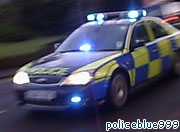Thousands of innocent Scots who haven’t even committed a crime face being branded as bigots on a new police database, according to The Scottish Daily Mail.
And one of Scotland’s top cops has also made the staggering claim that victims of ‘hate crimes’ suffer more than other crime victims, prompting accusations of double standards among the police.
Earlier this year Holyrood introduced legislation stipulating that people who commit ‘hate crimes’ against homosexuals, transsexuals, the disabled and other minorities will face tougher penalties.
Appear
And in a bid to monitor the situation every instance in which minority groups appear to have been victimised will now be recorded as a ‘hate incident’, even if no crime was committed.
The controversial scheme has been condemned by critics.
John Scott, an Edinburgh based human rights lawyer, said: “This isn’t going to be a record of hate crime – it will be a record of what well-intentioned but over-sensitive ‘third parties’ believe.
Big Brother
“The authorities don’t have a great track record of looking after data like this – people will find themselves named on this database having done nothing wrong.
“There is a Big Brother aspect to it and it’s hard to see why it’s being considered at all.”
And Gordon Macdonald, from Christian Action Research and Education for Scotland, warned: “It is ridiculous that the police are investigating and recording ‘hate incidents’ where no crime has been committed and based solely on subjective criteria – because someone ‘perceives’ the incident to be motivated by prejudice.”
Logged
The Association of Chief Police Officers in Scotland (ACPOS) has now been tasked with helping officers understand the new law and has drawn up guidelines.
Chief Constable Ian Latimer, head of Northern Constabulary, has claimed that victims of hate crimes take longer to recover than normal crimes.
Mr Latimer, chair of the Association of Chief Police Officers in Scotland’s (ACPOS) equality and diversity group, said: “Research has shown that due to the severe emotional trauma, victims of hate crime can take longer to recover than victims of non-biased crime.”
Mr Latimer’s comments are supported by the ACPOS’ official hate crime guidelines.
Trauma
But Margaret Watson, who set up the campaign group Justice for Victims after her daughter was murdered 20 years ago, slammed Mr Latimer’s comments.
She said: “We are still suffering 20 years after her death – ‘trauma’ like this never leaves you. It shouldn’t matter what colour or creed you are.
“A crime is a crime and to dismiss other people’s suffering in this offhand manner is a huge insult to all victims. The police are always talking about ‘equality’ but it seems it doesn’t apply to victims.”
Unfairly
Earlier this year a new report by the Civitas think-tank cautioned that Christians in Britain were being unfairly targeted for hate crime prosecutions.
The report, entitled A New Inquisition: Religious Persecution in Britain Today, also warned that existing hate crime legislation poses a danger to freedom of speech.
Jon Gower Davies, the report’s author, said: “Some police forces and the CPS [Crown Prosecution Service] seem to be interpreting statutes in favour of ethnic and religious minorities and in a spirit hostile to members of the majority population, defined as ‘White’ or ‘Christian’.”
Hate crime
Many of the prosecutions were for causing “religiously aggravated intentional harassment, alarm or distress” under the Public Order Act.
The report cited the example of Ben and Sharon Vogelenzang who were prosecuted for a hate crime, under Section 5 of the Public Order Act, last year after they engaged in a breakfast debate about Islam.
The couple, who were supported by The Christian Institute, were declared innocent last December but the ordeal has caused the couple serious financial hardship.
By contrast the report also cited the example of a Muslim man who escaped prosecution for a hate crime despite defacing a war memorial with slogans such as “Islam will dominate the world – Osama is on his way”.

